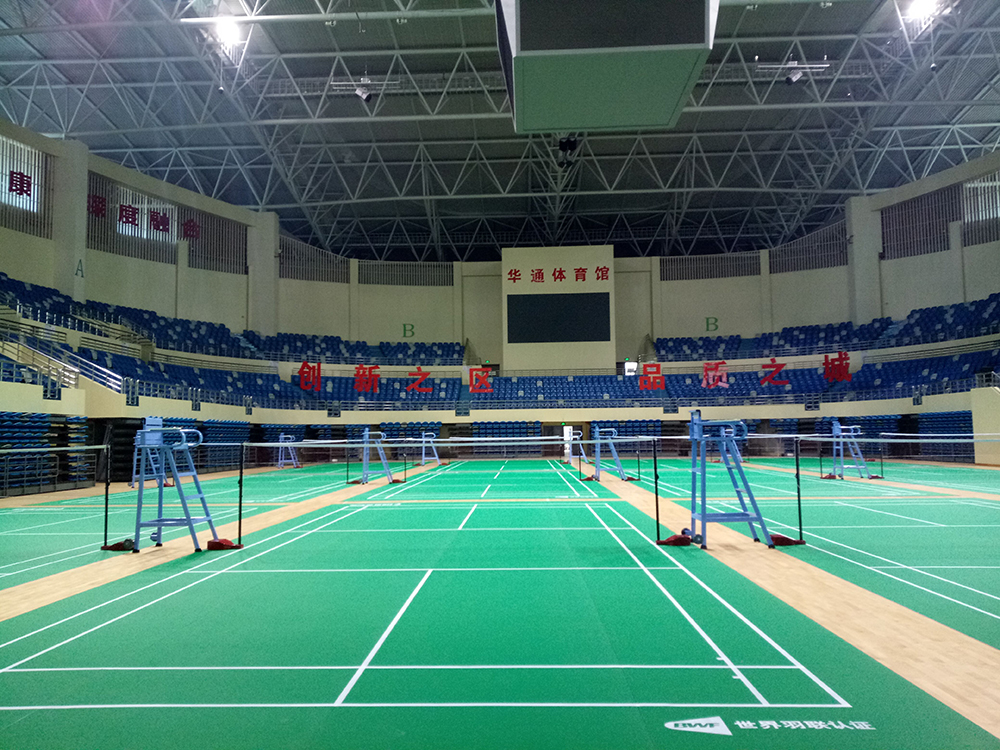10 月 . 15, 2024 22:58 Back to list
Choosing the Right Flooring Solutions for Commercial Warehouse Spaces
The Importance of Choosing the Right Flooring for Commercial Warehouses
When it comes to the design and functionality of commercial warehouses, flooring is a critical element that deserves careful consideration. The right flooring can enhance the operational efficiency of a warehouse, improve safety measures, and contribute to the overall aesthetic of the space. With various options available, understanding the unique requirements and characteristics of commercial warehouse flooring is essential for business owners and facility managers alike.
Durability and Longevity
One of the most significant factors influencing the choice of flooring for a commercial warehouse is durability. Warehouses typically house heavy machinery, trucks, and loads of inventory, which means the flooring must withstand substantial weight and impact. Concrete is one of the most common flooring materials used in warehouses due to its strength and longevity. It can handle heavy loads without cracking and can be treated or finished to enhance its resistance to spills and stains.
Another popular option is epoxy flooring, which is applied over a concrete base. Epoxy not only provides a smooth and shiny surface but also adds a layer of protection against heavy traffic, chemicals, and abrasions. Selecting a material that meets the demands of the specific warehouse environment will help ensure that the flooring remains intact for years, minimizing the need for repairs or replacements.
Safety Considerations
Safety is a top priority in any warehouse setting. Slips, trips, and falls are common accidents that can lead to severe injuries, affecting workers and ultimately impacting productivity. Thus, choosing flooring with proper slip resistance is paramount. Textured surfaces, for instance, can provide better traction for foot traffic, particularly in areas where spills are likely to occur.
Additionally, considering the lighting of the warehouse can influence the type of flooring selected. A well-lit space can reduce the risk of accidents, and bright flooring options can enhance visibility. Reflective surfaces can also help improve lighting without requiring additional overhead fixtures, thereby reducing energy costs while promoting safety.
Maintenance and Cleanliness
commercial warehouse flooring

The choice of flooring also impacts maintenance routines and overall cleanliness within a warehouse. High-quality materials that are easy to clean will save time and labor costs. Concrete and epoxy floors, for example, are relatively low-maintenance, requiring simple sweeping and occasional mopping with appropriate cleaning agents. On the other hand, flooring materials such as tiles or carpets may require more intensive cleaning processes and pose challenges when dealing with spills.
Furthermore, the ability to maintain clean environments can directly influence inventory integrity, especially in warehouses storing food or pharmaceuticals. Selecting flooring that meets health and safety regulations will safeguard the products and ensure compliance with industry standards.
Aesthetic Appeal
While functionality is the main concern when choosing a flooring type, aesthetics should not be overlooked. The appearance of a warehouse can impact the perception of the business by clients and visitors. A well-maintained and visually appealing space can create a positive image, which is crucial for brand reputation.
Opting for flooring that can be customized in terms of color and design allows businesses to enhance their corporate identity. For instance, colored epoxy flooring can incorporate logos or patterns, making the space aesthetically pleasing while ensuring that it remains functional.
Conclusion
Investing in the right flooring for commercial warehouses is essential for ensuring operational efficiency, safety, and maintenance. Whether you opt for durable concrete or versatile epoxy, the flooring should meet the unique demands of your warehouse environment. Each choice has its pros and cons, depending on the specific needs of the business, including weight tolerance, slip resistance, cleaning requirements, and aesthetic preferences.
In conclusion, when it comes to commercial warehouse flooring, taking the time to evaluate each option carefully will lead to informed decisions that enhance the warehouse's functionality and contribute to the overall success of the business. A well-chosen flooring solution will not only stand the test of time but also help create a safe and efficient working environment.
-
Custom Pickleball Court Solutions Convert Tennis & Indoor Builds
NewsMay.30,2025
-
Outdoor Pickleball Court Costs Build & Install Pricing Guide
NewsMay.30,2025
-
Premium Pickleball Sports Courts Custom Design & Installation
NewsMay.30,2025
-
Indoor Pickleball Courts Tennis Court Conversion & Custom Builds Tempe
NewsMay.29,2025
-
Professional Pickleball Court Installation & Tennis Court Conversions
NewsMay.29,2025
-
Grey Synthetic surface-rubber prefabricated track
NewsMar.07,2025

